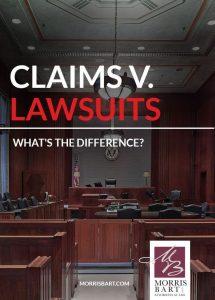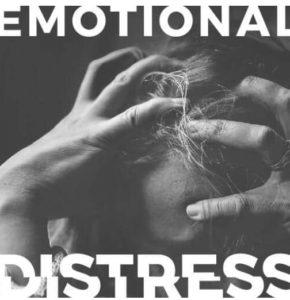
During a personal injury deposition, you will need to tell the truth about what happened and the effects the accident had on you emotionally, physically, and financially. You will need to stick to the facts and not guess or conjecture. Knowing what to say in a personal injury deposition is important because of the central role it could play in the outcome of your case.
If you work with a personal injury lawyer, they will be by your side during this process. They will also share tips to help you say the right things and ensure you understand how to share your side of the story during this official interview about your accident and injuries.
What Happens During a Personal Injury Deposition?
A deposition is an interview that occurs under oath. Essentially, you will answer questions from the liable party’s attorney and your own. These questions will center on your personal information, health history, accident, and injuries. Your attorney can go over some of the questions you should expect based on the facts of your case.
These interviews typically occur in a lawyer’s office or another similar meeting space. Generally, attorneys from both sides and a court reporter will attend. This process could take one to two hours. Depositions are less formal than a court appearance, but you will still need to remember that you are under oath and sworn to tell the truth.
You should come prepared to give detailed facts about where, when, how, and what happened. If you made any notes about your accident and injuries throughout the early days of your treatment and recovery, this is a good time to review them. It could help you remember key details that have faded from your mind.
For a free legal consultation, call 800-537-8185
Why Is a Personal Injury Deposition Necessary?
A personal injury deposition is a typical part of the discovery process. Discovery occurs following a personal injury lawsuit. It is the process when the plaintiff (you) and defendant (the accused liable party) gather and exchange evidence.
The deposition is how the other party learns your side of the story. This allows them to learn your perspective. They also hear how you might testify in court and can make decisions based on that.
This verbal interview often accompanies interrogatories. These are written questions answered under oath. Your personal injury attorney will guide you through answering these questions, too. They could include a more detailed look at expenses or other key facts that most would not remember off the top of their head. It could require you to review your bills, medical records, or other documents to answer them accurately.
When Would I Need to Give a Personal Injury Deposition?
Personal injury depositions are part of personal injury lawsuits. You will only need to give this type of interview if your attorney sues the liable party to attempt to recover fair compensation. A lawsuit is only sometimes necessary in these cases. When it is, a deposition is part of the process that allows each side to build their case and prepare for trial.
Some reasons why your attorney might recommend filing a lawsuit in your personal injury case include:
- Time is running out to sue based on the statute of limitations
- The insurer refuses to offer a fair settlement agreement
- They want to file both a lawsuit and an insurance claim simultaneously
- There are unanswered questions about liability
- There are other issues with the case that make them believe this is the best approach
If there is a deposition scheduled in your case, your attorney should discuss the process with you in detail. They will answer your questions, help you prepare, and offer tips to help you feel more at ease. You will know the time and location of your deposition with plenty of time to prepare. This is not something your attorney will allow to occur at the last minute, and they should be able to find a time that fits your schedule.
Click to contact our personal injury lawyers today
What Is at Stake in a Personal Injury Case?
The goal of a personal injury claim or lawsuit is to get justice and recover compensation based on your injuries, expenses, and losses. When another person or entity causes injuries, the victim can hold them legally responsible and recover compensation from them or their insurance company.
The amount and types of compensation differ based on the case facts. In many personal injury cases, victims can recover:
- Current and future medical treatment and care
- Lost income
- Diminished earning capacity
- Property damages, such as repairs to a vehicle following an auto accident
- Pain and suffering
- Wrongful death damages for surviving family members of victims who died
Holding the At-Fault Party Accountable in Your Personal Injury Case
To hold the at-fault party responsible for causing an incident and injuries, the victim must build a compelling case to show what occurred, why, and who was involved. This generally requires an in-depth investigation into the incident to document:
- The accused party had a duty of care to prevent injuries
- They breached this duty
- Their breach was the proximate cause of the incident
- The victim suffered physical, emotional, and financial damages
With the evidence to show these four factors were present, there are usually two options for recovering compensation:
- A negotiated settlement from their liability insurance carrier
- A lawsuit against them in the appropriate civil court
While much of the evidence used to document negligence and liability in these cases is the same for insurance claims and lawsuits, depositions are unique to the discovery process that occurs following a civil lawsuit filing.
Talk to a Lawyer About Your Personal Injury Case for Free
At the Morris Bart law firm, our personal injury lawyers fight for fair compensation for those hurt by someone else’s negligence. Our team has 15 offices and serves clients across Louisiana, Mississippi, Alabama, and Arkansas.
Contact the Morris Bart law firm about your case today. You can discuss your case with a lawyer from our firm during a free initial consultation.
Questions?Call 800-537-8185
to find a Morris Bart office near you.





